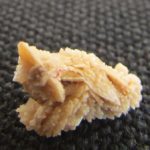
New findings relating to genetic differences in prostate cancer findings could help explain why men of African ancestry are more likely than white men to die from the malignancy.
French investigators have zeroed in on genetic mutations that could provide clues to why men of African ancestry are more likely than Caucasian men to die from prostate cancer (PCa).
The finding could inform the development of new treatment paradigms.
A team led by Olivier Cussenot, MD, PhD, of Tenon Hospital in Paris, showed that prostate tumors in African-Caribbean men, compared with those in French-Caribbean men, are characterized by a more frequent deletion at 1q41-43 encompassing the DNA repair gene PARP1 and a greater proportion of intrachromosomal rearrangements, including duplications associated with CDK12 truncating mutations, the investigators reported in European Urology.
Transcriptome analyses revealed an overexpression of genes related to androgen receptor activity in prostate tumor tissue from African-Caribbean men compared with French-Caucasian men. They also found overexpression of PVT1, a long non-coding RNA located at 8q24 that confirms the strong involvement of this region in prostate tumors from men of African ancestry.
The study compared prostate tumor tissue from 10 African-Caribbean and 15 French-Caribbean men with aggressive PCa who underwent radical prostatectomy. The researchers used nucleotide polymorphism arrays, whole-genome sequencing, and RNA sequencing to examine the difference between the racial groups.
In an accompanying editorial, Zoran Culig, MD, of Innsbruck Medical University, Innsbruck, Austria, commented that the new findings are interesting in the context of established therapies and could represent a basis for future functional studies. PARP1 deletion in the African-Caribbean population deserves investigation because PARP1 is involved in the regulation of several cellular processes in prostate cancer.2
Dr Culig pointed to a recent study showing that interleukin-6 (IL-6) may be involved in promoting stemness in tissues from African-American patients and others as well. “IL-6 is a potent regulator of cellular stemness not only in prostate cancer,” Dr Culig said in an interview with Renal & Urology News. “Higher levels of IL-6 may therefore cause epithelial to mesenchymal transition, down-regulate E-cadherin, and cause chemo resistance. Any approach that will effectively target IL-6 should be carefully considered in order to combat the resistance.”
Much debate centers on the potential role of environmental factors and genetic susceptibility in the development of PCa in men of African origin. “The most important reason why these issues should be further investigated are the higher incidence of aggressive prostate cancer in African Americans,” Dr Culig said. “Whether poor disease outcome also has something to do with reduced access to health care is a different question. However, it is very important to know that these patients have a higher activity of the androgen receptor, which is also a contributing factor in the pathogenesis of prostate cancer.”
William G. Nelson, MD, PhD, Professor of Oncology at Johns Hopkins University in Baltimore, where he is director of Sidney Kimmel Comprehensive Cancer Center, said the new study addresses important issues, but has limitations, including its small sample size. Some acquired gene defects seemed possibly over-represented among prostate tumors from African-Caribbean men, he pointed out. “This observation will need to be validated in much larger population studies better designed than the current one to truly test correlations with race/ethnicity,” Dr Nelson said.
It is plausible that variation in acquired genome alterations could reflect differences in environmental drivers of the disease, diet and prostate inflammation, and exposure to carcinogens, he noted. Dr. Nelson said the study by Dr Cussenot’s team is an important first step in examining some of these issues. “As described in the paper, for prostate cancer, loss of BRCA2 renders the cancer cells sensitive to PARP inhibitors. Expression of variant androgen receptors or loss of androgen receptor predicts poor response to anti-androgen treatment. Thus, the significance of finding disease subsets with specific genome alterations is that it might inform treatment decisions as part of precision cancer medicine,” Dr Nelson said.
References
1) Tonon L, Fromont G, Boyalt S, et al. Mutational profile of aggressive, localised prostate cancer from African Caribbean men versus European ancestry men. Eur Urol. 2018; published online ahead of print.
Culig Z. Identification of potential novel candidates for understanding racial differences in prostate cancer. Eur Urol. 2018; published online ahead of print.





